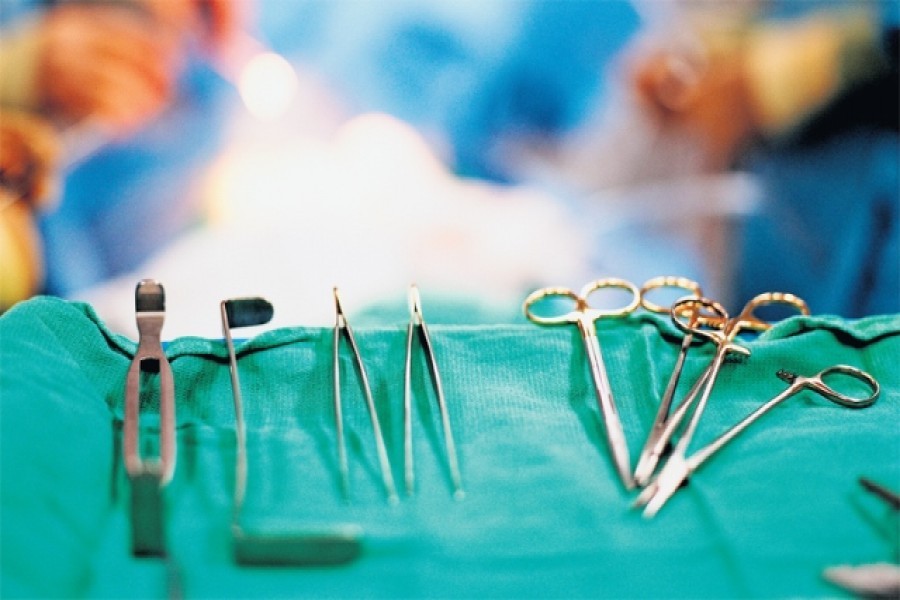
Published :
Updated :

Human organ donation is a highly sensitive issue. Deciding the legal parameter turns out to be a tricky and complex business because the task involves navigation between emotional donation and commercial organ transaction. In countries like Bangladesh where extreme poverty and illiteracy of people are likely to be exploited by intriguing quarters for financial gains, the need for clear-cut guidelines for donation of human organs and tissues is overriding. Years ago there were reports on some organ donations in exchange for money or even organs -- usually kidneys -- were taken out from unsuspecting people for transplantation in gross violation of medical ethics. This prompted the authorities to put in place some stringent rules and regulations against such medical malpractices.
However, there are critical moments when the closest attachment between the loved ones faces the toughest test. In such a test, one individual can make any sacrifice humanly possible -- least of all mere donation of an organ or tissues -- to save the life of another. The one to be saved may be a son or daughter, brother or sister, a life partner and the like. Humanity is at its noblest when one deeply feels that no sacrifice is enough for saving the loved one.
It is in a critical situation like this a couple of Bangladesh origin living in Britain refused to terminate the life of their daughter in coma in a British hospital and fought legal battle to take the little one to Italy for further treatment. It is exactly from such a consideration for a deep bond between a patient and his or her near and dear ones, euthanasia is yet to be approved in many countries.
In case of organ donation, past experiences in this country had not always been above board. Some moneyed people took advantage of simplicity, poverty and illiteracy of others to present them as willing donors of kidneys in particular. So there was a need for a set of clearly spelt-out guidelines and the High Court, while delivering judgment on a petition submitted by an aggrieved party in 2017 challenging certain sections of the Organ Transplantation Act 1999 (amended in 2018), has exactly come up with a 9-point guideline.
The HC has made the recommendation in the light of the Human Organs and Tissues Rules, 2014 of India and directed the government to do the required amendment within the next six months. In advanced countries like the United Kingdom, Scotland, England, Wales, Northern Ireland were given the freedom to approach to the issue of organ donation in their own separate way. Each of the territories has framed its own donation laws which are almost similar but with small variations. But this concerns mostly death of an adult in accident or otherwise prematurely. There organ donation is considered an act of great generosity. But people in all four territories have the 'opt in' and 'opt out' choices. In Wales if one does not register for tissue or organ donation (opt in and opt out), it is 'deemed consent'. In other territories, the general rule may be same but if family members are against use of tissues or organs of one such deceased, their decisions are respected.
However, in case of donation of kidney or other tissues a conscious decision is required on the part of the donor and s/he has to be a blood relation or one related by marriage. The problem arises when one has to prove the authentication of relationship. The nine-point guideline concerns mostly to prove the bona fide of the patients and the donors involved in an emotional donation. True, if one is a family member, a DNA (deoxyribonucleic acid) test can determine the fact but when they are not blood related, it becomes tough to prove the emotional bond. In such cases, abuse of the legal parameter cannot be ruled out.
The amendment suggested by the HC to the Organ Transplantation Act 1999 will have to be complied with within six months. Sections contested in the court mainly deal with the related persons as potential donors. The 9-point guideline is likely to clarify the points and the amendment is meant to complement the process of authentication. Genetic relations can be determined unerringly but other relations are not easy to determine. When it comes to analysis of the intention of the donor, it may not always be beyond doubt. Much as the Authentication Board may try to analyse the intention of a donor, it might warrant questioning along the line of an investigation. The bottom line is to avoid commercial donation of organs by all means.


 For all latest news, follow The Financial Express Google News channel.
For all latest news, follow The Financial Express Google News channel.